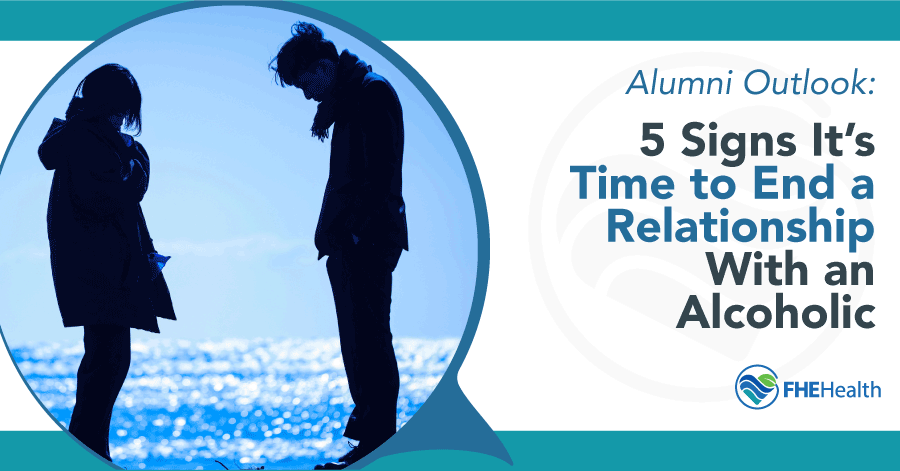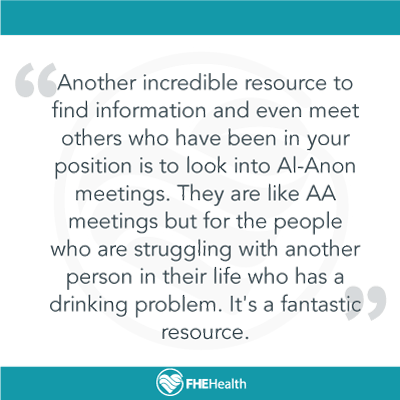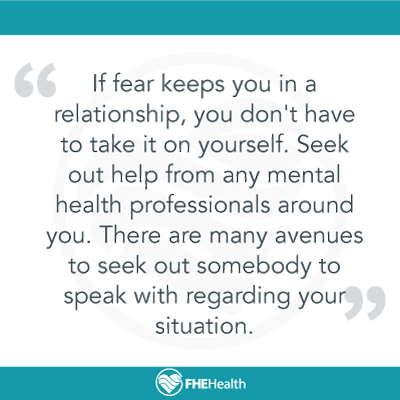
Let’s state the obvious right away, romantic relationships are complicated, very hard. It’s a fantastic feeling to meet someone and have them mutually feel the same way as you do. I would even label a relationship’s ‘honeymoon phase’ as a narcotic. You can get drunk on the feeling, and it’s great!
Love is a complicated emotion; there are healthier and unhealthier types of love. What’s most important in a relationship of two partners is that they love themselves individually, first and foremost. Without that, we enter the territory of codependency and toxicity.
Suppose you throw in the monkey wrench of having a partner who suffers from alcoholism (when I say alcoholism, that includes drug addiction, ultimately, they are the same). In that case, we face something incredibly more complicated than an everyday relationship.
When should you continue giving your loved one a chance when they continue to struggle, and when do you need to make the difficult decision to issue an ultimatum or end things? As someone who has been around people struggling with alcoholism for many years, some vital indicators point to ending things.
Here are some signs that it is time to move on with things before you get dragged down too much.
Their Drinking Is Affecting You Negatively
If your partner is having a significant substance abuse problem, it can impact you so much that it sometimes may seem like you are the one who can’t stop drinking. You can be at risk of:
- Neglecting work, family, or friends
- Depression and anxiety
- Financial problems
- Not taking care of yourself (very important to acknowledge)
- Hard time sleeping
- Taking out your anger at your partner on other innocent parties
These risks can come organically and slowly sometimes. So slow that you don’t even notice that your significant other’s drinking problem has taken you hostage and is dominating your life.
They Are Not Able to Show Any Sign of Stopping
 The first point is usually the thing that brings awareness to the issue. Once individuals recognize and acknowledge that the alcoholic partner is affecting them severely, it’s time to address something.
The first point is usually the thing that brings awareness to the issue. Once individuals recognize and acknowledge that the alcoholic partner is affecting them severely, it’s time to address something.
Addressing them properly would take an entirely new article to cover, so let me say, and it’s essential; if you are fearful or unsure how to confront your partner, seek out help or even research online.
It is perfectly okay and common to be afraid to bring up the elephant in the room. Another incredible resource to find information and even meet others who have been in your position is to look into Al-Anon meetings. They are like AA meetings but for the people who are struggling with another person in their life who has a drinking problem. It’s a fantastic resource.
After doing the appropriate preparation, if you confront them, are straightforward about it, and set boundaries, it is your time to see how serious they are about stopping. If nothing changes ultimately, that is a major red flag.
Physical or Emotional Abuse
Let’s make one thing clear. If you have a partner drinking heavy amounts, there is a significant risk of them blacking out and getting abusive. Abusive doesn’t solely mean putting hands on somebody. Abuse can be verbal and can be just as painful, if not more than being physically fit.
If you feel like abuse has already taken place or does take place, it is an immediate giant red flag, and action needs to be taken ASAP.
If your partner has been abusive in any way:
- Let someone you trust know about it
- Make a plan to get away and separate yourself
- Do not let them manipulate and promise it will never happen again
- Seek professional help
- You can always call the National Domestic Violence hotline 1-800-799-7233 24 hours a day/7 days a week
If it is in the physical nature, you have every right to notify the police. Nobody ever has a right to put their hands on you. Domestic abuse is a significant problem in this country and cannot ever be treated lightly. Allowing a partner to get away with it the first time can send you down a road of dire consequence.
Please, if you are in an abusive relationship, at least call the hotline and talk to somebody. You can remain anonymous if need be.
You Are Staying Because Of Fear
 Many people stay in relationships plagued by an alcoholic partner because of fear. It can be fear of them not functioning without you, fear of their reaction to your decision to break things off, or something like fear of being alone yourself.
Many people stay in relationships plagued by an alcoholic partner because of fear. It can be fear of them not functioning without you, fear of their reaction to your decision to break things off, or something like fear of being alone yourself.
If there is anything a relationship should NOT be based off, it’s fear. If fear keeps you in a relationship, you don’t have to take it on yourself. Seek out help from any mental health professionals around you. There are many avenues to seek out somebody to speak with regarding your situation.
Living in fear with an alcoholic partner means they have crossed a line. That line is a point of no return if they are unwilling to seek real help and/or inpatient treatment.
If any of these signs resonate with you, like I keep bringing up, let somebody know. It is human nature to want everyone in your life to think you are in a great and healthy relationship. That makes it hard to let people know things are going badly, but you must let others know if you’re struggling with a partner who cannot stop drinking or using substances.
Resources:
https://www.thehotline.org/ (Domestic Abuse Hotline Website, includes number you can text and online chat)
https://www.womenslaw.org/ (Legal resource for any victim of abuse, for men and women)






